Sacred Days, Infinite Rewards: Journeying Through Dhul-Ḥijjah’s First Ten
Islam designates certain times and places as sacred, not only to enhance spiritual consciousness but also to preserve harmony and justice among people. Among these sacred times are four specific months that Allah ﷻ has declared inviolable—Dhul-Qaʿdah, Dhul-Ḥijjah, Muḥarram, and Rajab. These are known as al-Ashhur al-Ḥurum (الْأَشْهُرُ الْحُرُمُ)—the Sacred Months.
Allah ﷻ says in the Qur’an:
ٱلشَّهْرُ ٱلْحَرَامُ بِٱلشَّهْرِ ٱلْحَرَامِ وَٱلْحُرُمَـٰتُ قِصَاصٌۭ ۚ فَمَنِ ٱعْتَدَىٰ عَلَيْكُمْ فَٱعْتَدُوا۟ عَلَيْهِ بِمِثْلِ مَا ٱعْتَدَىٰ عَلَيْكُمْ ۚ وَٱتَّقُوا۟ ٱللَّهَ وَٱعْلَمُوٓا۟ أَنَّ ٱللَّهَ مَعَ ٱلْمُتَّقِينَ
"The sacred month is for the sacred month, and for [all] violations is legal retribution. So, whoever has assaulted you, then assault him in the same way that he has assaulted you. And fear Allah and know that Allah is with those who fear Him."
— Sūrat al-Baqarah (2:194)
This verse indicates that the sanctity of these months requires Muslims to exercise greater restraint and avoid conflict, except in cases of just retaliation. The sacredness is not symbolic but legal and spiritual, influencing the conduct of Muslims in warfare, worship, and social dealings.
A widespread misunderstanding is to consider Ramaḍān as one of the Sacred Months. While Ramaḍān is undoubtedly the most spiritually intense month due to the obligation of fasting and the revelation of the Qur’an, it is not one of the Ashhur al-Ḥurum. The four Sacred Months are:
- Dhul-Qaʿdah
- Dhul-Ḥijjah
- Muḥarram
- Rajab
These months have been honoured from pre-Islamic times and were upheld by Islam with divine affirmation. The Arabs would suspend warfare during these months, allowing safe passage and peace, especially for pilgrims heading to the Kaʿbah.
Pre-Islamic Manipulation of the Calendar
These months were held in such high esteem that even the pre-Islamic Arabs, despite their idolatry and tribal feuds, generally refrained from warfare during them out of respect for their sacredness. However, before the advent of Islam, the Arabs would manipulate the calendar by altering the sequence of the sacred months to permit warfare during periods when fighting was prohibited. Islam decisively ended this practice, affirming the divine arrangement and restoring the sanctity of the months as ordained by Allah ﷻ.
Beyond their historical sanctity, these months are distinguished by their heightened spiritual significance. Deeds performed during these periods carry greater weight—both in reward and in sin. As al-Ḥāfiẓ Ibn Rajab al-Ḥanbalī aptly warned:
"احذروا المعاصي، فإنها تحرم المغفرة في مواسم الرحمة"
"Beware of sins, for they deprive one of forgiveness during the seasons of mercy."
Just as committing a sin during prayer is more grievous than outside it, transgressions in these sacred times bear more severe consequences. Conversely, righteous deeds performed in these months are multiplied in reward, making them prime opportunities for spiritual growth and divine closeness.
Dhul-Ḥijjah: The Holiest Among the Sacred Months
Among the four sacred months, Dhul-Ḥijjah holds a unique and elevated status. It encompasses the rites of Ḥajj, the Day of ʿArafah, and Yawm al-Naḥr (the Day of Sacrifice), making it the most spiritually intense period outside of Ramaḍān.
Abū Bakrah (raḍiy Allāhu ʿanhu) reported that during the Prophet’s ﷺ Farewell Pilgrimage (Ḥijjat al-Wadāʿ), he addressed the Companions with a profound reminder of the sanctity of life, time, and place:
“What day is this?”
We remained silent, thinking he might give it another name.
He said, “Is it not the Day of Sacrifice (Yawm al-Naḥr)?”
We replied, “Yes.”
He then asked, “What month is this?”
Again, we stayed silent, thinking he might call it by another name.
He said, “Is it not Dhul-Ḥijjah?”
We replied, “Yes.”
The Prophet ﷺ then declared:
“Verily, your blood, your wealth, and your honour are sacred to one another—like the sanctity of this day of yours, in this month of yours, in this city of yours. Let those present inform those who are absent, for perhaps the informed may convey it to someone who will understand it better.”
— Ṣaḥīḥ al-Bukhārī (67), Ṣaḥīḥ Muslim (1679)
This powerful sermon underscores the profound sanctity associated with Dhul-Ḥijjah. Not only does it host the most significant rituals of Ḥajj, but it also serves as a platform for moral and communal instruction—reminding believers of the inviolability of human life, dignity, and property.
Maximising Rewards: The Blessings of the First Ten Days of Dhul-Ḥijjah
The first ten days of Dhul-Ḥijjah are among the most spiritually significant periods in the Islamic calendar. The Prophet Muḥammad ﷺ highlighted their immense value by stating that even jihād fī sabīlillāh (striving in the path of Allah) does not equal the reward of righteous deeds during these days—except for one who gives everything, including life and wealth, and returns with nothing.
One of the most referenced hadiths regarding Dhul-Ḥijjah, particularly its first ten days, states:
عن ابن عباس رضي الله عنهما قال: قال رسول الله ﷺ: «ما مِنْ أيَّامٍ العَمَلُ الصَّالِحُ فيها أَحَبُّ إِلَى اللهِ مِن هذه الأيَّامِ» (يعني أيَّامَ العَشْرِ)
Ibn ʿAbbās (raḍiy Allāhu ʿanhu) reported that the Messenger of Allah ﷺ said:
“There are no days in which righteous deeds are more beloved to Allah than on these days” (referring to the first ten days of Dhul-Ḥijjah).
The companions asked: “Not even Jihād in the path of Allah?”
He replied: “Not even Jihād, except for a man who goes out with his life and wealth and returns with nothing.”
— Ṣaḥīḥ al-Bukhārī (969), Sunan Abī Dāwūd (2438)
This emphasis illustrates the unparalleled weight these days carry in terms of divine reward and spiritual elevation.
To better understand the spirit of this hadith, we may reflect on the life of Muṣʿab ibn ʿUmair (raḍiy Allāhu ʿanhu), a Companion who embodied total sacrifice—leaving behind comfort, wealth, and status for the cause of Islam.
The early generations of Muslims deeply internalised the significance of these days. One telling example is Saʿīd ibn Jubayr, the eminent Tābiʿī, who narrated that Ibn ʿAbbās (raḍiy Allāhu ʿanhumā)—the Companion who transmitted the very hadith about the virtues of these ten days—would seclude himself during this time, devoting himself fully to worship. His dedication reflects the deep reverence that the pious predecessors held for this sacred period.
So, what makes these ten days so special?
Scholars have given several reasons for the superiority of these days. One major reason is that Allah ﷻ completed and perfected the religion of Islam during this period. On the Day of ʿArafah, this verse was revealed:
"Today I have perfected for you your religion, completed My favour upon you, and have approved for you Islam as your religion."
— Sūrat al-Mā’idah (5:3)
Moreover, Ibn Ḥajar al-ʿAsqalānī explains that what makes these ten days uniquely virtuous is that all five pillars of Islam converge within them:
- Shahādah (declaration of faith)
- Ṣalāh (prayer)
- Ṣawm (fasting)
- Zakāh (charity)
- Ḥajj (pilgrimage)
No other period in the Islamic year offers this comprehensive embodiment of worship.
When asked how one should utilise these days, Imām al-Ḥasan al-Baṣrī (raḥimahullāh) gave a balanced and wise answer. He stressed the importance of first upholding obligatory duties, such as the five daily prayers and fasting if possible. Then, he encouraged believers to increase in good deeds like dhikr (remembrance of Allah), ṣadaqah (charity), voluntary fasting, and nawāfil prayers.
Because deeds during these days are multiplied in reward, even small acts carry immense spiritual weight.
What Quran Says About These Days
The first ten days of Dhul-Ḥijjah occupy a special and exalted status in Islam. According to the majority of scholars—including Imām al-Ṭabarī—the “ten nights” by which Allah ﷻ swears in Sūrat al-Fajr refer to these very days:
وَٱلۡفَجۡرِ • وَلَيَالٍ عَشۡرٍ
“By the dawn, and by the ten nights.”
— Sūrat al-Fajr (89:1–2)
This interpretation is considered a scholarly consensus, highlighting the immense virtue of these days, as Allah ﷻ Himself honoured them with an oath. Some scholars have offered alternative views—suggesting that the ten nights may refer to the last ten nights of Ramaḍān or that the expression could include both sets due to the absence of a definite article in the Qur’ānic wording. However, the most prominent and widely accepted opinion holds that these verses refer to the first ten days of Dhul-Ḥijjah.
Why 'Nights' Instead of 'Days'?
A common question arises: why does the Qur’an refer to nights when it is the days of Dhul-Ḥijjah that are deemed most virtuous?
The answer lies in the eloquence of the Arabic language, where night and day can often represent a full 24-hour cycle depending on context. For instance, in the story of Prophet Zakariyyā (ʿalayhi al-salām), the same time span is referred to as both days and nights in different verses. Therefore, the “ten nights” in Sūrat al-Fajr are understood to include the entire period, encompassing both day and night.
Other Oaths in Surah al-Fajr
Allah then swears by “Fajr” (dawn)—which many scholars interpret to be the dawn of Yawm al-Naḥr (Eid al-Aḍḥā), the culmination of these ten days. This dawn follows the Day of ʿArafah and ushers in the blessed day of sacrifice. The Prophet ﷺ said:
"اللَّهُمَّ بَارِكْ لأُمَّتِي فِي بُكُورِهَا"
“O Allah, bless my Ummah in their early mornings.”
— Sunan Abī Dāwūd (2606), graded ḥasan
This indicates the special blessing in engaging in worship and righteous acts during the early morning hours, especially between Fajr and sunrise—a time for dhikr, duʿāʾ, and Qur’ān recitation.
The Even and the Odd
Allah also swears by “the even and the odd” (wa-sh-shafʿi wa-l-watr). Scholars interpret these as referring to:
- The 10th day of Dhul-Ḥijjah (Eid al-Aḍḥā) – the even
- The 9th day (ʿArafah) – the odd
These two days stand out among the ten for their unmatched significance in reward, forgiveness, and nearness to Allah.
The Passing Night and Qiyām
The verse “By the night as it passes” (واليل إذا يسر) is taken by many scholars as a reference to the last third of the night, the most blessed time for qiyām al-layl (voluntary night prayer), a time when Allah’s mercy descends and supplications are most likely to be accepted.
This further elevates the sacredness of the ten days by highlighting their nights as prime moments for spiritual retreat and intimate connection with Allah.
Golden Hours: After Fajr and Before Maghrib
Scholars advise believers to seize the post-Fajr time—a moment when most people are heedless or asleep. These quiet, serene moments are ideal for deep remembrance, reflection, and planning one’s acts of worship for the day.
Similarly, the time between ʿAṣr and Maghrib on the Day of ʿArafah holds immense merit for duʿāʾ. This golden hour is often compared to the sacred time on Jumuʿah, especially in the final hour of the day—both seen as special windows of divine acceptance.
The sacred months—Dhul-Qaʿdah, Dhul-Ḥijjah, Muḥarram, and Rajab—are divinely appointed times of elevated spiritual reward. Revered even before Islam, their sanctity was affirmed by the Qur’an and the Prophet ﷺ. Among them, the first ten days of Dhul-Ḥijjah stand out as the pinnacle of spiritual opportunity—days in which every act of worship is magnified and blessed.
Let us not allow these moments to pass us by. Through ṣalāh, ṣawm, ṣadaqah, dhikr, and sincere duʿāʾ, we can draw near to Allah ﷻ and harvest rewards beyond measure.
About the Author
Noorulameen is a first-year degree student at Akode Islamic Centre, located in Kerala. He hails from Wandoor, in the Mala
References
- Al-Bukhārī. Ṣaḥīḥ al-Bukhārī, Ḥadīth No. 969.
- Abū Dāwūd. Sunan Abī Dāwūd, Ḥadīth No. 2438.
- The Noble Qur’ān. Sūrat al-Baqarah (2:194). Retrieved from https://quran.com/2/194
- The Noble Qur’ān. Sūrat al-Mā’idah (5:3). Retrieved from https://quran.com/5/3
- Ibn Rajab al-Ḥanbalī. Laṭāʾif al-Maʿārif.
- Ibn Ḥajar al-ʿAsqalānī. Fatḥ al-Bārī.
- Al-Ṭabarī, Muḥammad ibn Jarīr. Tafsīr al-Ṭabarī.
- Quran.com. https://quran.com
- Omar Suleiman. (n.d.). Lectures and reflections on Dhul-Ḥijjah [Various Media].
More Related Articles
Eid al-Aḍḥā Through the Quran, Torah and Bible: Unity in Diversity
Hajj of Heart and Heart of Hajj
The Significance, Spirituality and Wisdom of Qurbani
Disclaimer
The views expressed in this article are the author’s own and do not necessarily mirror Islamonweb’s editorial stance.

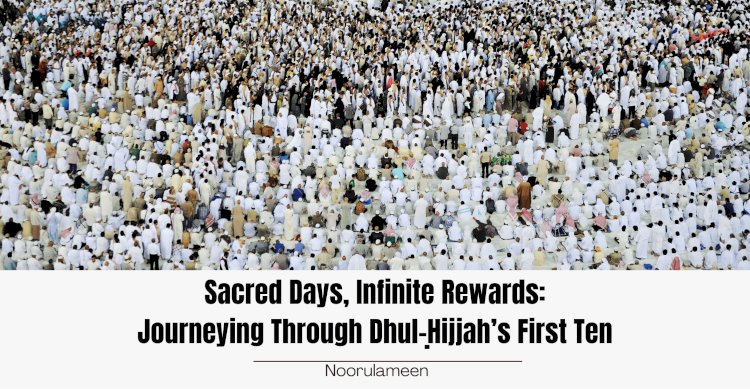


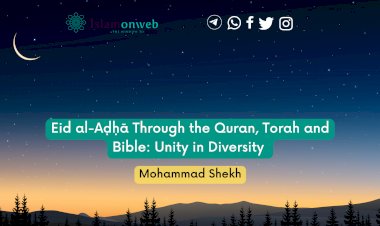

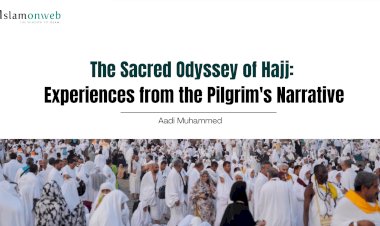
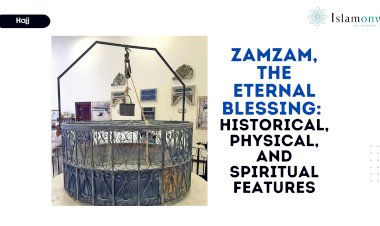
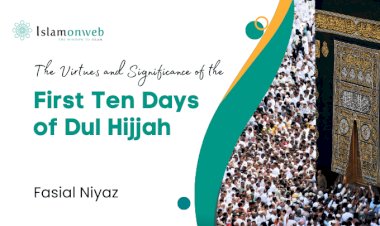
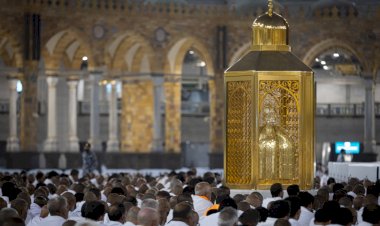














Leave A Comment